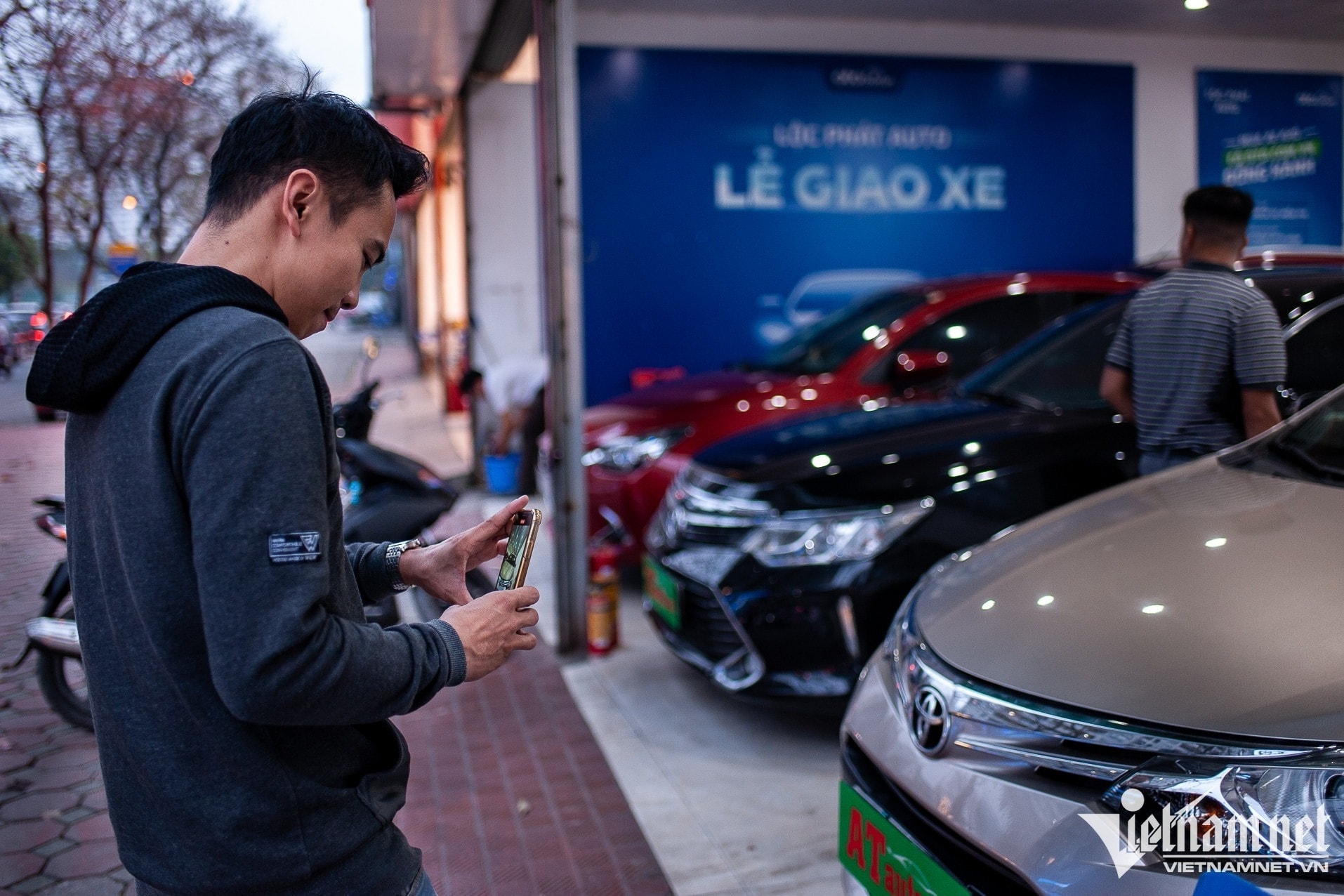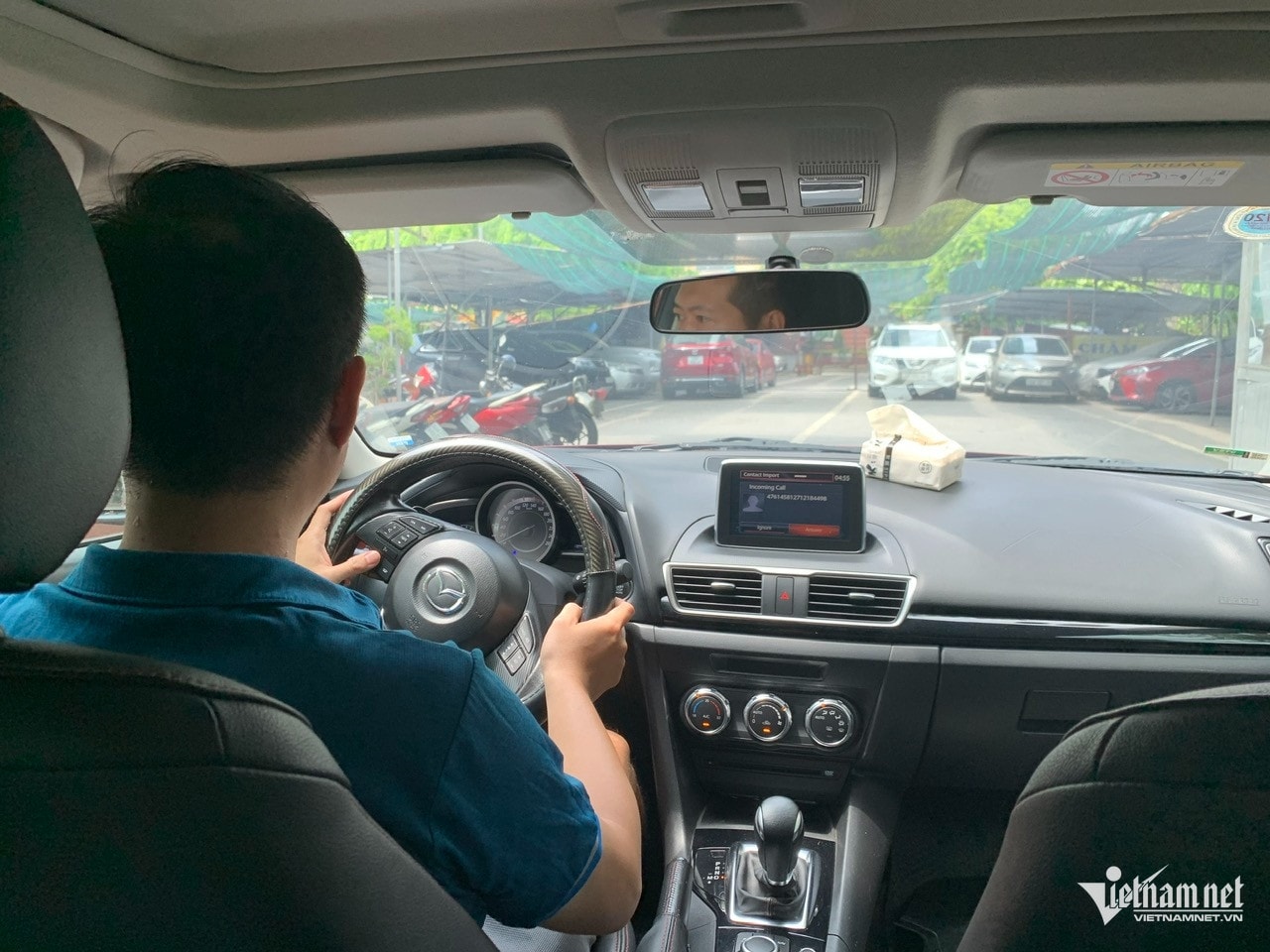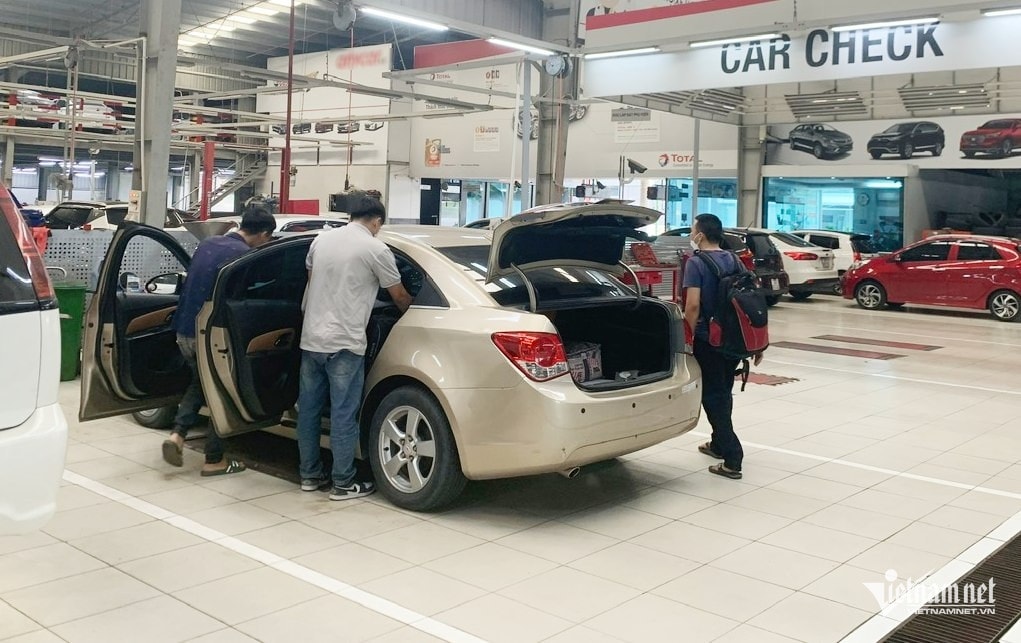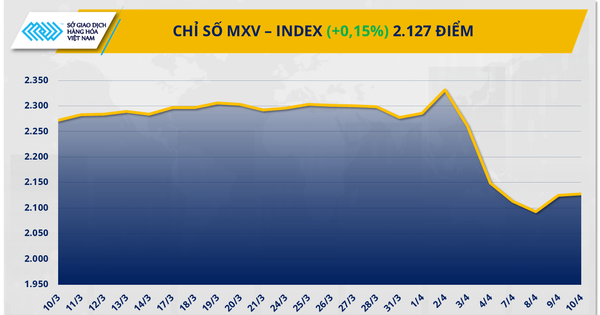Owning your first car is a milestone for many people. However, not everyone is truly satisfied with their initial choice. In fact, many people feel disappointed and have to sell their car at a loss after only a short time of use.
Owning the first car is always memorable for the owner. Photo: The Bang
Talking to VietNamNet, Mr. Duong Trung Kien - Director of Kien Phong Automobile Trading and Service Company Limited, who has nearly 20 years of experience in the field of car buying and selling - said that first-time car buyers often lack experience and easily choose the wrong car that does not suit their actual needs. For example, many people love large SUVs even though they mainly move in narrow urban areas, causing inconvenience when using.
In addition, many people spend more than their budget on buying a car without considering additional costs such as fuel, insurance, maintenance and parking, leading to financial pressure. Another common mistake is making a hasty decision without taking a test drive, leaving them disappointed when they realize the car is not as expected.
“Each person has different financial conditions, preferences, purposes of use and levels of understanding of car models. Therefore, one person’s criteria cannot be applied to another. Most importantly, first-time car buyers need to be alert, research carefully and make a reasonable financial plan to make the right decision,” Mr. Kien shared.
First-time car buyers often lack experience in choosing and using a car. Photo: Hoang Hiep
With his experience, Mr. Kien points out 5 common mistakes that first-time car buyers often make and how to avoid them to make the most suitable choice:
1. Choosing a car that does not suit your needs
Many people buy cars based on their preferences or trends without properly assessing their actual needs. For example, a small family living in a small area with limited parking space may choose a bulky SUV over a compact, fuel-efficient car.
How to avoid: Clearly define the purpose of use: traveling in the city, serving the family or business? If you mainly drive in the city, rarely go to the provinces, then a sedan or hatchback is a reasonable choice. If you need a spacious space for the family, an SUV or MPV will be more suitable.
2. Not calculating usage costs carefully, falling into financial "traps"
People who have never owned a car will find it difficult to calculate all the monthly costs of owning a car. In addition to the initial purchase price, car owners also have to pay for fuel, maintenance, insurance, road fees, parking fees, and even fines if they are unlucky enough to violate traffic laws. This makes it easy for users to fall into a financial "trap", and the car becomes a burden for them and their families.
How to avoid it: Before buying a car, make a list of your recurring expenses and estimate the total amount you will spend each month. Choose a car with low fuel consumption and reasonable maintenance costs to avoid financial pressure later.
3. Only care about new cars, ignore old cars
Many people try to buy a new car for their first car purchase because they think that used cars are prone to breakdown and are not reliable. But in fact, a used car that has been well cared for and regularly maintained by its owner is still a good choice for long-term use. At the same time, buying a used car can save quite a bit of money, so this is also an option for those who are not too financially well-off.
How to avoid: If your budget is limited, consider buying a used car from a reputable dealer. Ask a professional to check the condition of the car and negotiate a reasonable price.
Compared to new cars, buying a used car helps save a significant amount of money but also carries more risks. Photo: Hoang Hiep
4. Buying a defective car or a car with legal problems
One of the biggest risks when buying a car, especially a used car, is buying a defective car or a car with legal problems. In fact, some cars have product defects, have been in accidents, flooded, have reverse mileage, or are smuggled, mortgaged to banks, etc., but are still advertised at attractive prices. If not checked carefully, buyers can easily fall into a "trap" and have to spend a lot of money on repairs later, while also causing unnecessary legal trouble.
How to prevent: Always check and test drive before deciding to buy to evaluate the driving feeling, smoothness, visibility and safety features. At the same time, check the full history of the vehicle through registration, chassis number, engine number, check fines, etc. You can use the "car check" service at the company or reputable addresses to understand the technical and legal status of the vehicle.
5. Choosing the wrong time to buy a car
Whether it is a new or used car, the time of purchase greatly affects the price. Many people who buy a car when the market is hot (like the time before Tet) will have to accept a high price, few promotions and even have to "add peanuts" to have a car to use right away.
How to avoid : Monitor the market, buy a car at times of strong promotions or low season (when registration fees are supported, the Ghost month, when the company needs to clear old cars, etc.). Don't be afraid to negotiate for a better price or receive additional incentives such as free insurance and accessories.
Source: https://baonghean.vn/5-sai-lam-nghiem-trong-khi-mua-xe-lan-dau-10294140.html








![[Photo] Prime Minister Pham Minh Chinh chairs meeting to discuss tax solutions for Vietnam's import and export goods](https://vstatic.vietnam.vn/vietnam/resource/IMAGE/2025/4/10/19b9ed81ca2940b79fb8a0b9ccef539a)
![[Photo] Phuc Tho mulberry season – Sweet fruit from green agriculture](https://vstatic.vietnam.vn/vietnam/resource/IMAGE/2025/4/10/1710a51d63c84a5a92de1b9b4caaf3e5)
















![[Photo] Unique folk games at Chuong Village Festival](https://vstatic.vietnam.vn/vietnam/resource/IMAGE/2025/4/10/cff805a06fdd443b9474c017f98075a4)


































































Comment (0)